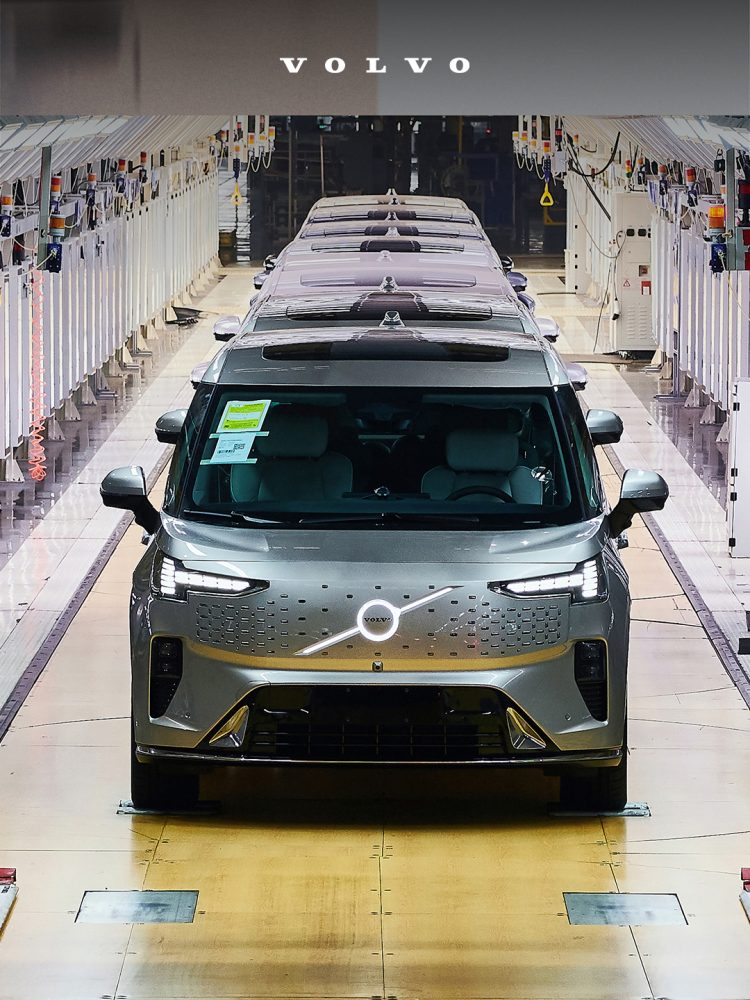
Swedish automaker Volvo has rolled out its last diesel-powered passenger vehicle, after a 45-year relationship with the powertrain and cranking out millions of oil-burning cars. Between 2012 and 2016, diesel accounted for half of the company’s global sales. But those days are over now as the company moves toward an all-electric future.
Since 1991, Volvo made more than 9 million vehicles with diesel engines. But the records don’t go any further back, leaving 12 years unaccounted for, so that total number is a lot higher in reality, reports Automotive News Europe.
The final diesel-powered model was an XC90, a large SUV with a turbocharged inline 2-liter four-cylinder engine, which rolled off its production line yesterday in Torslanda, Sweden. The car will head to the World of Volvo museum in Gothenburg, where it will be on display for anyone wanting to ponder the noxious emissions of yore. Well, not exactly of yore, but at least it’s la fin for Volvo’s contribution. Sort of. We’re not talking about Volvo Trucks’ vast diesel commercial trucking and equipment business here.
The Torslanda factory has been switched over to making electric motors for the brand’s lineup of full-electric cars. By 2030, Volvo aims to be an electric-only automaker, making it one of the first legacy carmakers to do so.
Former CEO Håkan Samuelsson explained over two years ago that to “remain successful, we need profitable growth.” He added, “So instead of investing in a shrinking business, we choose to invest in the future – electric.”
Back in 2017, he announced then that Volvo would stop further development on diesels at a time when nearly half of all new cars sold in Europe had diesel engines. Fast-forward to today, that number has dropped to 12%.
Electrek’s Take
It’s good to see the end stages for diesel in the passenger car segment, which peaked in 2015, some 30 years after it first achieved a double-digit share of the European market. In the US, diesel never had the same traction, due to the abundance of cheap gas. But in Europe over the past decade, bad buzz started to spread, with growing concerns over its poisonous emissions and the infamous Volkswagen Dieselgate. Now, with electrification firmly taking hold, diesel engine development has all but ceased in Europe. Petrol-burning engines are soon to see the same fate.
In a new milestone last year, the number of new electric car registrations has exceeded those of diesel-powered vehicles in Europe for the first time, according to the European Automobile Manufacturers Association.
Next year, the EU is tightening its restrictions with a 15% reduction in CO2 emissions by 2025 for both cars and vans. From 2030, cars will see a 55% reduction in emissions (relative to a 2021 baseline), and vans will see a 50% reduction. By 2035, all new cars and vans registered in Europe will be zero-emission. It can’t happen soon enough – but of course, there is plenty of pushback on these targets from automakers.
If you’re an electric vehicle owner, charge up your car at home with rooftop solar panels. To make sure you find a trusted, reliable solar installer near you that offers competitive pricing on solar, check out EnergySage, a free service that makes it easy for you to go solar. They have hundreds of pre-vetted solar installers competing for your business, ensuring you get high quality solutions and save 20-30% compared to going it alone. Plus, it’s free to use and you won’t get sales calls until you select an installer and share your phone number with them.
Your personalized solar quotes are easy to compare online and you’ll get access to unbiased Energy Advisers to help you every step of the way. Get started here.
FTC: We use income earning auto affiliate links. More.

Comments